With over 13 million customers all over the word, Amir talks about his motivations as a leader and the importance of constant learning.
Every few weeks as part of The Heartbeat, I asks one question to a founder, CEO, or business owner I respect about their biggest leadership lesson learned. This week, I interviewed Amir Salihefendić is the founder and CEO of Doist.
Amir Salihefendić is the founder and CEO of Doist, a productivity software company serving over 13 million people. As a remote, bootstrapped company,
Amir also turns the table and asks me a few questions about our recent new product launch 🙂 Don’t miss our chat here…
Claire: Hi everyone. I’m Claire Lew. I’m the CEO of Know Your Team. Today, we have an incredibly special guest on The Heartbeat. We have Amir Salihefendić, who is the CEO and founder of Doist, this amazing company that has over 13 million users and builds products like Todoist and Twist, productivity apps that are used all over the world. I think what’s most fascinating is they’ve been able to have this reach with a 50 person company, completely remote, and bootstrapped from the very beginning. Amir, I know I’m a big fan of your work. You’re a member of The Watercooler, our online community, and have just loved always your perspective about leadership. I’m excited to ask you today this one question here on The Heartbeat.
Amir: Well Claire, it’s amazing to be here. I’m also a huge fan of your work. I need some productivity tips because I’m unsure how you can pull it off like all of these projects and you are just like two people. It’s very, very fascinating and inspiring.
Claire: Oh thank you, thank you. I don’t know, it’s never as glamorous as it looks, for sure. If we’re fooling some people, then my job is done. Amir, this question that I want to ask you about leadership that I’ve been asking all sorts of leaders who I admire is what’s one thing you wish you would have learned earlier as a leader?
Amir: That’s a very good question.
The thing is, I never actually really aspired to be a leader. It’s kind of like I was forced into that.
Maybe having some kind of aspiration to actually learn it earlier or see the value of it, yeah. I was always a lone wolf. I just like to work alone, and I didn’t really like to work a lot with people. Learning all of these skills has been a challenge yeah. I would definitely say yeah, probably much earlier on, I would have liked to have a mentor or somebody telling me, “This actually is very important for your future.”
Claire: Absolutely. I think there are so many people who can relate to that, so many CEOs and managers who I speak with are like, “Yeah, I just found myself in this role.” For you, Amir, let’s rewind the clock here. What did you see yourself becoming? What is the story behind how you became CEO and founder of this company that has millions of customers and you’ve got employees all over the world? How did that happen by accident?
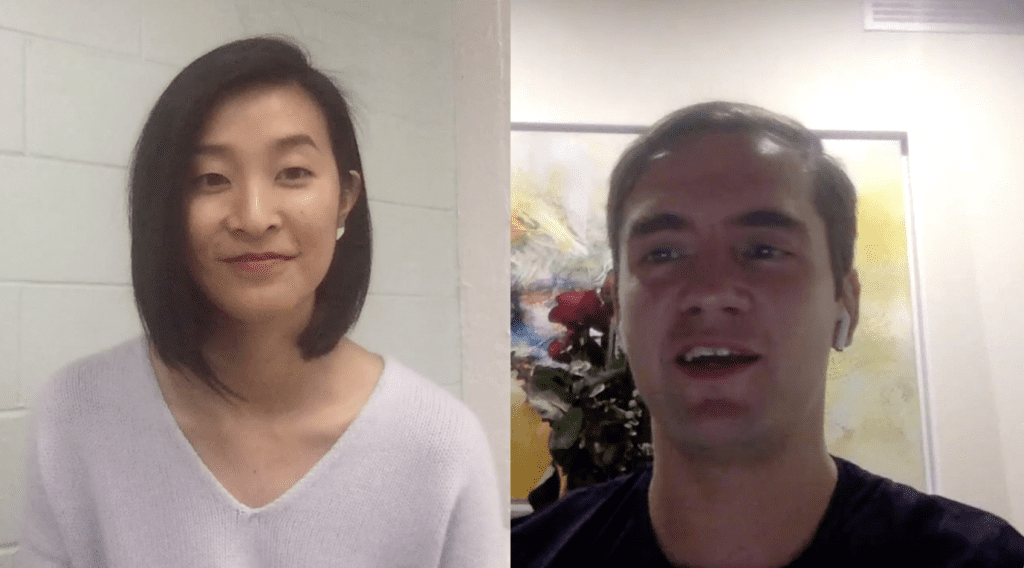
Amir: Yeah. I think if you listen to a lot of stories, it’s like the similar story line where you just have an idea, and you just are very passionate the idea, and you want to see this happen in the world and create this. Then at some point, you figure out, all the skills that I have are not sufficient to actually implement this. Then you need to go out and find people and convince them to join you. Basically, my journey, I saw multiple projects in the past, and I was always very project-driven.
Initially, I think my biggest success, what I thought about was a spell checker. I grew it actually and sold it off. I was still in my early 20s, maybe even younger than that. That’s that, and creating a spell checker, if you use some library stuff, it’s not really that difficult. Then once you venture into how the project … I merged onto this, which is the task manager Todoist for the last 10 years, the complexity is very, very huge. Especially right now, you have so many platforms. You can’t just pull it off all by yourself.
I got up here, I’m like, “Hey, if I really want to make something impactful, I really need to have a team and a company and more people that actually believe the same things that I do.” That’s what’s my story. I think it’s also much more healthy, because I think it’s a very bad habit right now.
The people who aspire to be leaders of their field – that shouldn’t be your inspiration. You should want to create something and then hire people and become the CEO afterwards.
Claire: Absolutely. In some ways then, maybe not learning all the stuff earlier was maybe a good thing? Rather, what I really appreciate about that sentiment Amir is that you’re saying that your focus isn’t to just tell people what to do, or to assume the name or the title, but to actually want to have an impact and to create the work. That was the path that got you to being a leader. I think there’s quite a few people like you said who’ve followed that story line and that are archetype.
I guess my question to you, to circle back to what you expressed as, “Oh, well I do wish I would have known a little bit about what I was getting into.” What would you say, of all the things, comes first to mind of like, “Had I known that this was part of the role, I wish I would have prepared this better,” or you mentioned, “I wish maybe I would have found a mentor earlier so that I could have talked to them more about X”? What is X?
Amir: As you know, it’s like a very diverse job.
You actually have to be good at almost everything. At least know something about everything because if you don’t, then you’re probably not going to be very good. Your company’s not going to be very good at that aspect.
Right now, we don’t have any sales [department]. It’s from the reflection that I don’t know anything about sales, or anybody in the company knows about sales. So we are really, really bad at it.
I think it’s the same thing and everything as a leader, especially as a founder. I think you need to be very good at learning stuff and changing yourself. I didn’t really know that in the beginning. I told you, you just had to cooperate to get products and hire good people…

Claire: That’s not it? That’s hard enough by the way. That’s hard enough as is. You just talked about two extremely difficult things, create a kick-ass product and hire kick-ass people. Those are hard in itself. You’re saying there’s another layer of optimizing and evolving your ability to learn very quickly as a leader it sounds like,
Amir: Yeah. Especially right now, as you’re scaling and adding more people, I think it becomes much more challenging, yeah. Definitely I think I still need to change myself and adapt myself to new situation. Then also people inside the company, we have a lot of people that have been with the company for over five years. They also need to do that. Kind of a journey, as you probably know.
Claire: It’s a journey for all of us. I’m curious, and you slightly touched on this, but I would love to dig deeper into first of all, how do you know what are the things that you’re supposed to be learning? The ocean is infinite and your time is not. Is it that there’s like a pain in the business and you’re reacting to the pain? Is it that you as Amir, you take time off to go out into the woods and you read and you self-reflect? Is it that yeah, you have a small council of mentors that you talk to? How do you know what to go deep on, what to start learning, what to start evolving yourself as you said?
Amir: That’s a very good question. I think there’s different resources you can use. I think Twitter is actually amazingly good. You can filter your feed, and you follow the interesting people. There’s a lot of good stuff there. Even also being part of the community like the Watercooler is also great. Yeah, for instance, book recommendations or an issue that you have, you can go in and see what do other people think you need to do in that situation? I mean even a community I think is very important, even for myself.
I was an early part of the HackerNews community, though HackerNews is quite toxic right now, but in the beginning it was actually very good and an amazing resource. Over the years it has become worse. The thing is, having a community I think is also very important. Then also just being a sponge. I read a lot, like both articles and books and audio books, podcasts. I doubt you can actually say you need to be very good at a specific thing because you need to know a bit about everything, I think. Then once you have a problem, then you go deeply into it and figure out what should we do here? Yeah, that’s at least my strategy.
Claire: Absolutely. No, I find it actually quite inspiring. I think the undercurrent of what you are describing is two things. One is almost a insatiable curiosity to know more, to be better, to feel like, “You know what? I don’t have all the answers. There are things and aspects that I need to learn.” Then I think also is the refusal to be complacent. I think as leaders, it can be very easy, especially when at least what I’ve observed is usually become a leader be you’re good at something. Rarely do you just get into the position because you’re bad at a bunch of things. You get into the position because you’re good at something.
When you’re good at something, it’s very easy to really sit on that and be like, “Oh, I’m good at building really good products,” or, hiring people where I can delegate tasks or whatever. You forget the stuff you’re not good at, which was what you’re saying, to really zoom in on. I those are really wonderful takeaways. I’m curious as well, Amir, for folks who are watching this, who are new managers, or who are maybe just really struggling as a founder or as an entrepreneur. How can they put this into practice with limited time? Is there something that you do or say to yourself to remind yourself to be learning, to be reinventing yourself, to be evolving in a certain way? What advice would you have to any new manager or to any entrepreneur who’s struggling?
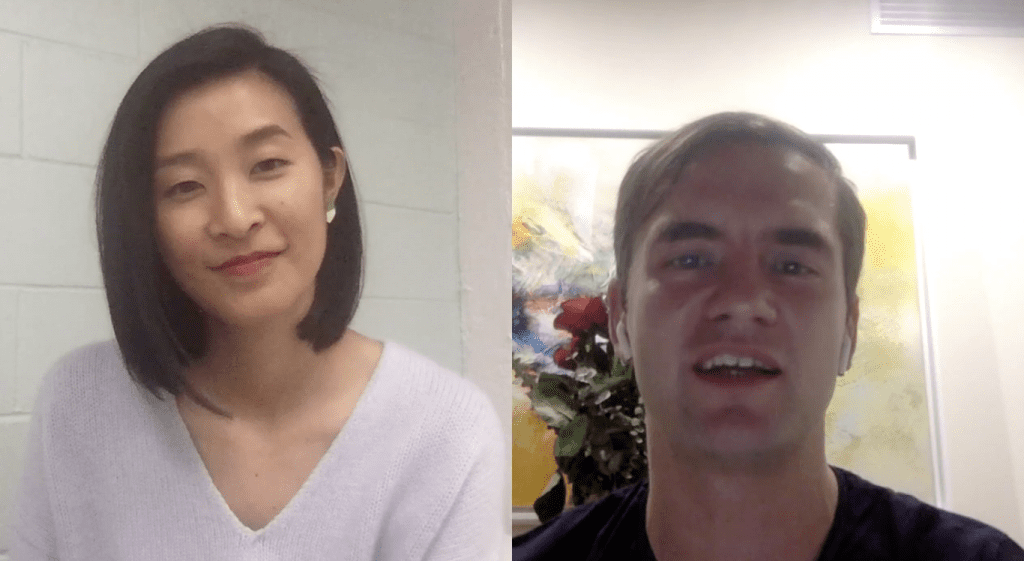
Amir: Yeah, I would probably have a bunch of stuff to say.
I think the most important part, at least for me, is having a mission and then being driven by this mission. It forces you just to learn and adapt and want to improve.
I do like if you are motivated by something else, let’s say money or fame or whatever else, then I doubt you will actually want it that much. Maybe you will become complacent. Maybe you’ll be satisfied.
At least what I have found out with me, I am actually never satisfied. I find it very, very brief, because I think it’s an amazing human trait. Then that is really a big energy driver. I can always see what are we actually bad at. Of course, you can’t really become too pessimistic. I think complacency is definitely a huge problem, especially if you have any kind of success. I think it’s very easy to just go and be happy with yourself, yeah.
Claire: Absolutely. No, I think that advice is gold.
Amir: I’m also very curious. I also have a question for you.
Claire: Oh my gosh. Yeah, let’s do it. I’m all ears.
Amir: You have probably been asked this many times, but I’d actually love to hear your scaling or non-scaling strategy. Why haven’t you hired more? Do you actually plan in the new year to hire somebody else?
Claire: I love it Amir. You’re asking me questions on my own show. Growth is an interesting thing. There’s growth by head count, there’s growth by impact. For me, the thing that I’ve always been interested in is how can we help as many people as possible with being as simple and straightforward as an organization as possible. That’s the first thing that I’ve always thought about. Then the second thing that I’ve always thought about is I’ve always tried to be very honest with myself about what I actually like to do.
It’s funny, because as a profession, I think on leadership, study leadership, talk to leaders 24/7. I don’t really like leading tons of people, if that makes sense. The idea of running a 100 person, 300 person, 1,000 person company, maybe I could do it, but it really wouldn’t be that fun. I think about that a lot, and I try to be very honest with myself of, “Ooh, it’s tempting to hire more people, but Claire, is that actually what you want to focus on doing?” That’s the second thing I think about.
Then I think the third thing that influences me strongly is because I have this and am in this amazing position where I get to talk to CEOs of companies of all sizes, and get to almost peek inside their day. I have a pretty good sense of what I would like in my day to day. I talk to the CEOs that run billion dollar companies that have thousands of people, and I talk to entrepreneurs who bootstrap their company, and it’s 100 people, the whole range. Trying to understand like, what would I really enjoy?
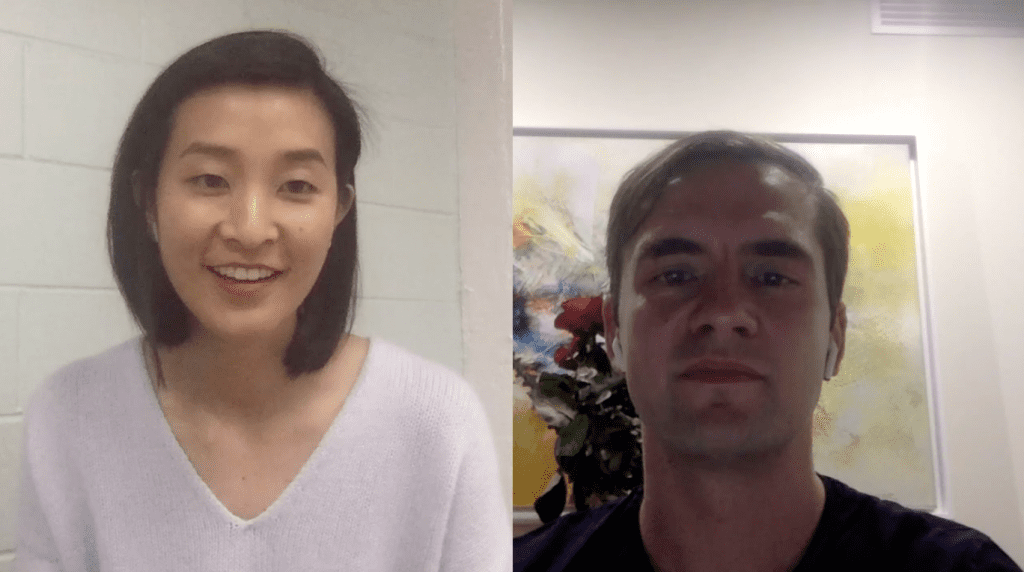
I think what it all comes down to, if you mix all those influences, is again, just really being, you talk about motivation, wanting to have impact with reducing the complexity of the business itself. Here’s the issue that comes with that, is there are definitely constraints. It means that, oh my gosh, Daniel and I, my CTO, there’s so much that we wish we could do and that we’re not doing, or that we don’t feel like we’re moving fast enough and that we’re not. In the past year, what we noticed was, and folks who had been following along, know this as well, is that we noticed a change in our audience as well, and this mismatch with our audience and our product.
After figuring that out, and now looking to the new year, figuring out, “Oh, well I think we now have this really …” I think we’re really finally nailing what we want to offer people and who is actually now listening to us. Maybe it will make sense to hire more people. We’ll see. I always keep my options open for, “Oh, does that mean raise more money?” or raising any money, because we haven’t ever. Does that mean taking out a bank loan? What does that exactly mean? I’m not 100% sure. It’s still actually a little bit early for us to say.
Hopefully that peels back the curtain a little bit, Amir, on my thinking. I think the long story short, because that was very ramble-y, is I have the luxury to peek ahead into all these CEOs who are running companies many steps ahead of mine and just really being honest with myself of, “What kind of company do I want to build? What’s actually fun for me and what’s motivating for me?”
Amir: That makes so much sense. The thing is, there’s a saying, more people more problems.
Claire: Totally.
Amir: Yeah.
Claire: It’s interesting. When I do talk to founders Amir, sometimes I express, “Oh, you know, I do wish we were moving faster on some of this stuff,” and blah blah blah. I remember, I was sitting down with one founder who was like, “Claire, you are two people. You are profitable. You have happy customers. Your product’s awesome. It’s kind of as good as it gets. The minute you start getting any bigger than you are, it just isn’t as fun. It gets more complicated. Right where you are is actually the most fun I ever had running my business. I think if you talk to a lot of founders, it’s the really fun time.” I was like, “Oh!” That’s helpful to hear from someone who’s been through it before.
Amir: Yeah. I think definitely adding people, and this like obsession with head count, if somebody asks you how big is your company, it’s like head count. We can be 1000 people, but maybe it can have no impact or very little impact, and you can be maybe five people and have an amazing impact. I think there’s a vanity metric there, that we need to remove and just focus on impact, but I’m actually unsure how we should measure impact. That’s the problem.
Claire: Totally. I know, and it’s completely subjective. I think for me, my self-check, Amir, is always like, do I want to do this, this idea of growing the business, whatever that means in terms of headcount and impact? Do I want to do it because it makes me feel good to post about it on Twitter and it makes me feel good to tell my friends who are also running companies. “Oh yeah, we hired this person,” or, “Oh, our blog got viewed by this many people,” or, “Oh, this is our revenue.”
All these, like you said, a lot of vanity metrics, when really for me, what’s most interesting is that I’m making a tangible difference in someone’s actual day to day. How that’s quantified in terms of a number, kind of hard. The most rewarding things are, and I’m sure it’s the same for you, when I get an email from someone who says, “Claire, the leadership training that you gave was hands down the best leadership training I’ve ever had,” or, “This product, Know Your Team, helped me learn something I had no idea about and we saved someone from leaving the company because of it.”
It’s those, “This blog post Claire, all this totally changed my leadership philosophy.” I just think those are the moments for me where I’m like, “Ah, we have to replicate that,” more than is it exciting to say, “Oh, we hit certain revenue numbers,” which was always great. I’m a fan of money, no worries there, or hiring people. Always you had, for me at least, a self-check of, “Why?”
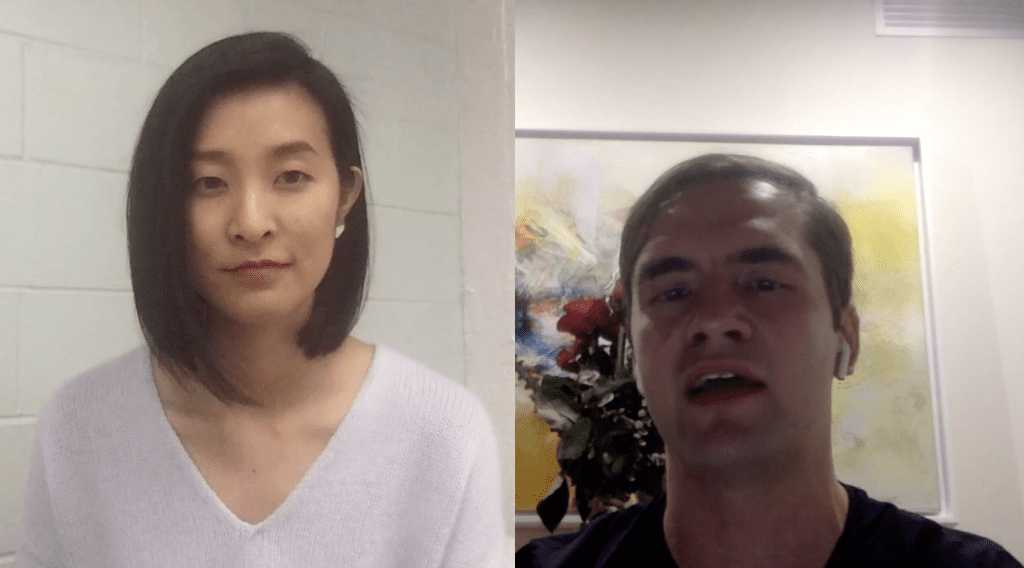
Amir: Yeah. I think also something that are very problematic. It’s like as you scale and add people, you get these inflection points where things just break, because the complexity becomes too big. Then you need to resolve that, and we have been through multiple of these, and they are very problematic and very energy consuming. I think it’s also, if you can actually stay relatively small.
The thing is, small teams, of instance, Apple’s industrial design team I think, they are on to 20 people, and they have various products and they have changed the world.
Claire: Right.
Amir: I don’t think they would be more productive or more impactful if they had 1000 people working there. That’s also something that we think a lot about. It’s finding the right combination of people, I mean the right people, instead of just adding a lot of them.
Claire: Absolutely. Well then on that note, I have one last question for you Amir, because I can sit here and talk to you for hours about this. On this note about finding the right people, I think one of the most common questions that I get and that a lot of founders discuss amongst themselves is hiring. I know we could probably go really deep on this also and have a whole separate podcast session on just hiring, but you’ve brought it a few times too, it’s importance as the company grows. For you, if you could sum up how you think about hiring the best people, what you look for, what advice would you share for folks who are watching this, about, “Okay, so you have to hire someone. Here’s some things to think about that most people don’t tell you.”
Amir: Yeah. That can tell you what, for me, is a very, very important thing. I think it’s personal projects or the day they actually created something themselves. We have a very, very huge correlation between people that have really been good at their job and have created something themselves.
I think if I look somebody’s resume, and they have only worked for other companies and there’s zero initiative on starting something themselves, so having a side project, something like that, then that’s a huge red flag for me. For me personally, I think that shows that that person is really passionate about something.
A lot of times, for instance, they can maybe have an open source project they work on during the weekend through the night or whatever. That shows you they do enjoy the work so much that they would work for free and do your spot of like a community at work. Before I founded all this, even right now, I have open source projects that I do on the side, because I actually love to develop. For me, this passion for the job is very, very important. Same with these designers, and even migrating people. For instance, if they are really good at marketing they’re already hang out on ProductHunt and be part of that community there, or something like that.
Claire: Right, have a blog on the side.
Amir: Yeah, exactly. Of course, you can still go out. We have eyes on people that have been amazing and they just didn’t have any personal projects.
Claire: Sure.
Amir: It’s like, you can have a dark horse, but there’s just this huge correlation. Whenever I see somebody that has done something themselves, it’s just like yeah, I feel good about this person. Yeah.
Claire: Totally. I think to your point, it hints at the deeper motivation for why people do it, right? It’s not because I’m getting paid to, but maybe because I actually enjoy it or increases my learning. I think that is invaluable advice Amir. Thank you so much for all of your insights. I learned so much. I actually also enjoyed getting asked questions, finally. That’s actually a really nice change. I know everyone who’s watching this really appreciates all your wisdom as well. Thank you.
Amir: Thank you Claire. Best of luck also with the new product and rebranding. I’m actually unsure how you can do all of that with two persons, again. We need to do a session about personal productivity. I’ll say, write a post about it. I would love to read that part actually.
Claire: I’ll think about it, yeah. I appreciate the suggestion. No, it’s good to know people are interested. Thank you so much again Amir, talk to you soon.
Amir: Bye-bye Claire.
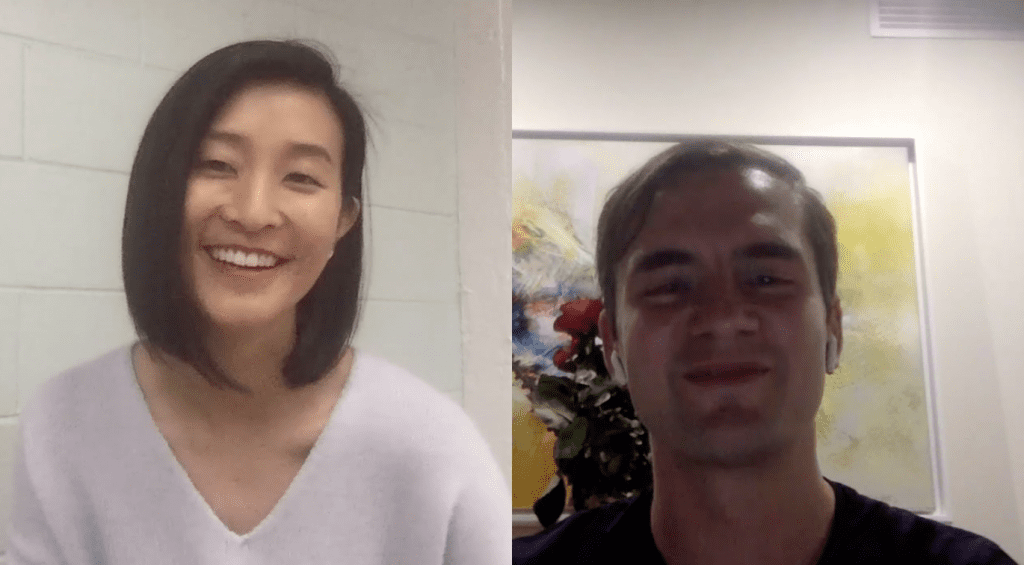
If you appreciated this interview with Amir, check out all our Heartbeat interviews with leaders…
